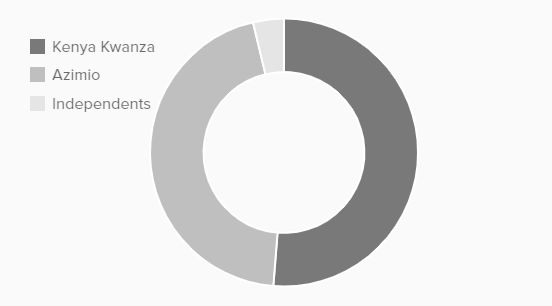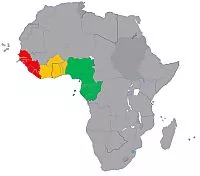This week, the National Assembly is screening President William Ruto's cabinet nominees and the prime cabinet secretary position has come under scrutiny. The ruling Kenya Kwanza coalition has already demonstrated its superiority in parliament with Speaker Moses Wetang'ula ruling that it was lawful for Ruto to create the position by executive order. Even so, this invention creates a potential conflict in the cabinet hierarchy given the stature of ex-deputy prime minister Musalia Mudavadi who is the nominee. For now, Ruto has honoured his power-sharing pact with allies who helped him to defeat an alliance between his predecessor Uhuru Kenyatta and Raila Odinga in the last general elections. Therefore, the president's coalition will remain stable in the near term but his incoming cabinet is susceptible to rivalries that may threaten cohesion.
SIGNIFICANCE – POWER AND HIERARCHY

New alliances have coalesced around Ruto since he came to power in August (See: Ruto declared Kenyan presidential election victor). This month, Speaker Wetang'ula announced that 14 MPs had defected from the opposition coalition Azimio to Kenya Kwanza. This has raised the ruling coalition's tally in the National Assembly to 179 compared to Azimio's 157 (see chart).
Now, the ruling Kenya Kwanza coalition has established its majority in parliament and is sharing power among its key figures and constituent parties who mobilised to defeat Odinga's Azimio:
- FORD Kenya's Moses Wetangula has become National Assembly speaker, while Musalia Mudavadi of the Amani National Congress has been nominated as prime cabinet secretary.
- The Democratic Party's Justin Mutiri is nominee for attorney-general and Moses Kuria of Chama Cha Kazi has been chosen for the trade portfolio. Ruto has also selected Kithure Kindiki from his own United Democratic Alliance to be the interior secretary.
- Meanwhile, former central bank governor Njuguna Ndung'u has been handed the treasury portfolio. He is credited for developing Ruto's 'bottom-up economics' that prioritises informal business and smallholder agriculture. This would shift fiscal policy from ex-president Uhuru Kenyatta's infrastructural expansion that heavily piled on the debt stock.
Ruto created the prime cabinet secretary role to repay a political debt to his Kenya Kwanza allies especially Mudavadi. Now, he must manage the cabinet hierarchy and balance the distribution of responsibilities between Mudavadi and Deputy President Rigathi Gachagua.
Mudavadi told parliament's vetting committee on Monday, "At a personal level, I will not hesitate to walk from my office and visit the deputy president's office – and consult with him if there's any issue that requires consultation,"1 But there is potential conflict in the overlapping roles that the president has assigned to both men. DP Gachagua will 'oversee the implementation of cabinet decisions' while Mudavadi will 'oversee government projects and 'coordinate national legislative agenda'.
OUTLOOK – POTENT, BUT DELICATE
At this point in the electoral cycle and backed by a parliamentary majority, Kenya's incoming coalition cabinet has opportunity to pursue an onerous legislative agenda. Ruto has announced food and fuel subsidy cuts in addition to pruning recurrent spending in this year's budget to rein in public debt. These measures earn credibility from Ndung'u's track record. The policy environment is also stable enough for reforms to be executed.
Since May, the central bank has responded to rising inflation by hiking its main lending rate twice having previously held it for seven years. Central bank management remains reliable. Further, amendments to the National Government Coordination Act would minimise friction in the cabinet by defining the dynamic between the president, his deputy and prime secretary.
Conversely, delays in advancing this legislation would threaten cohesion within the coalition. Multiple cabinet changes occurred under Mwai Kibaki (2002 to 2013) as rivals and political ambitions clashed. Some of those factors and actors are present in the current government.
Footnote
1. Musalia Mudavadi: There'll be no conflict (October 2022). NTV Kenya
The content of this article is intended to provide a general guide to the subject matter. Specialist advice should be sought about your specific circumstances.


